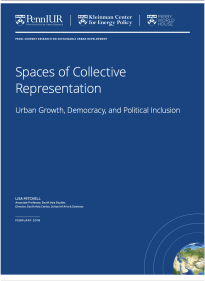Key Message
To foster more inclusive and democratic urban environments, it is essential to recognize the historical, cultural, and socio-political contexts of public spaces. Policymakers and urban planners must ensure that public spaces are not only available for recreational purposes but also for political engagement. The location and accessibility of these spaces matter significantly, as they must be visible and proximate to sites of decision-making to be effective. By working closely with local civil society groups, historians, and urban sociologists, planners can develop strategies that respect local meanings and practices, thereby creating more inclusive and sustainable urban spaces that truly support democratic participation and political representation.


